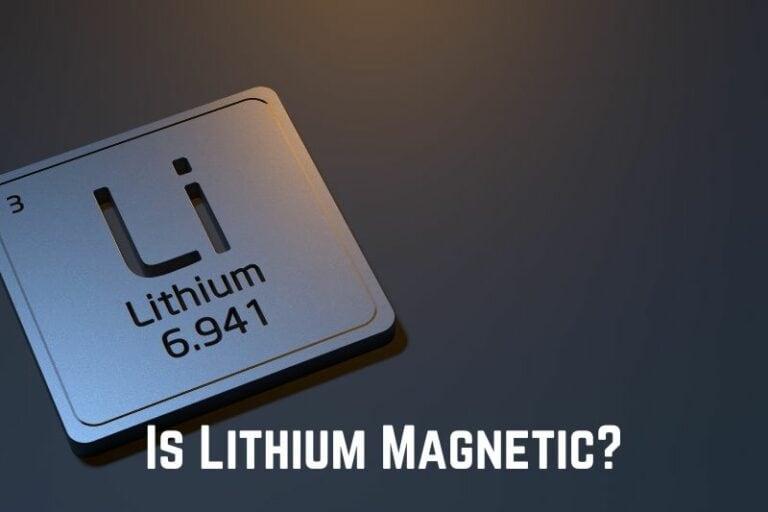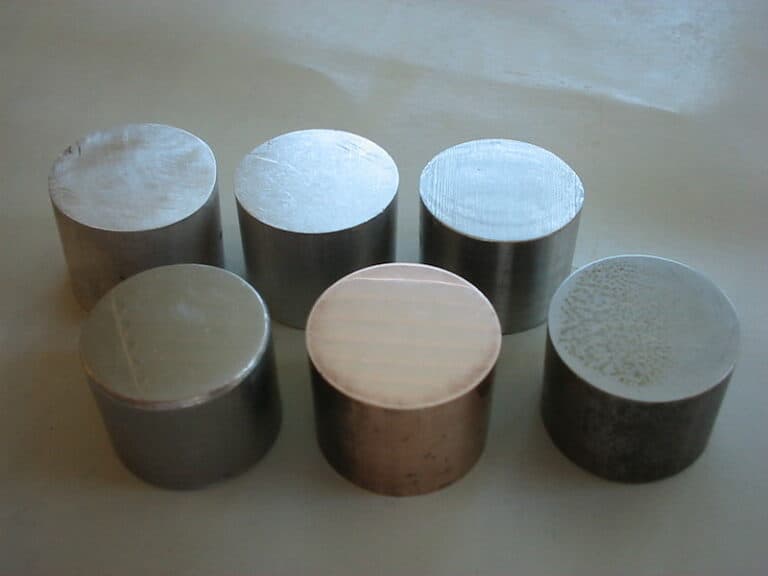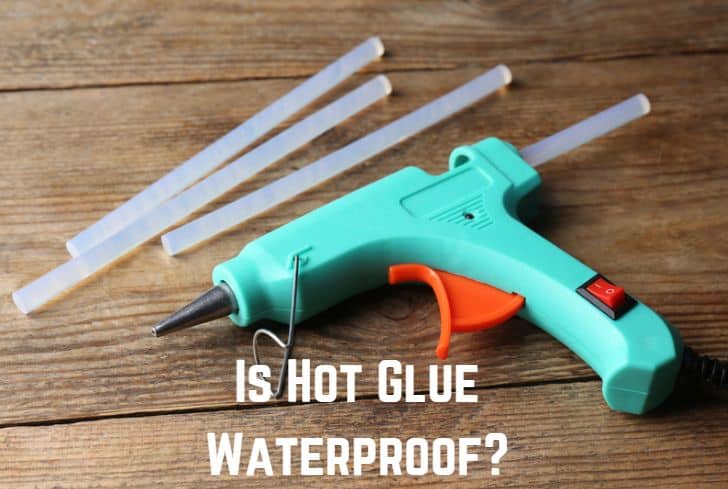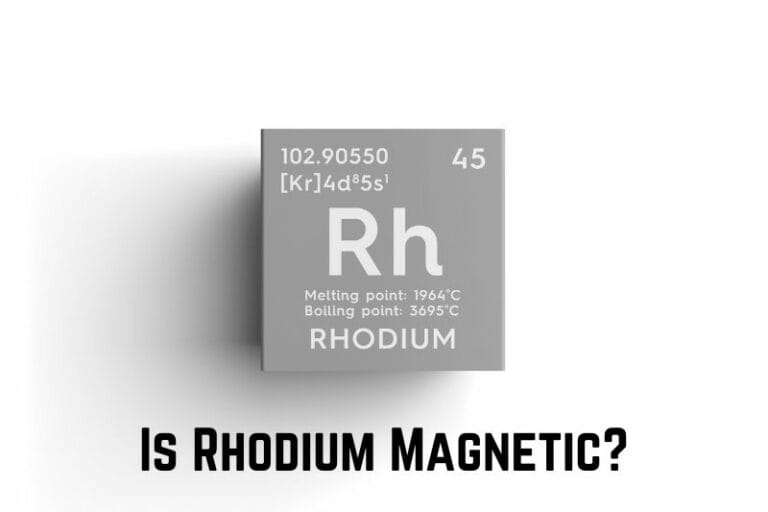Is Deodorant Flammable? (Can It Cause an Explosion?)
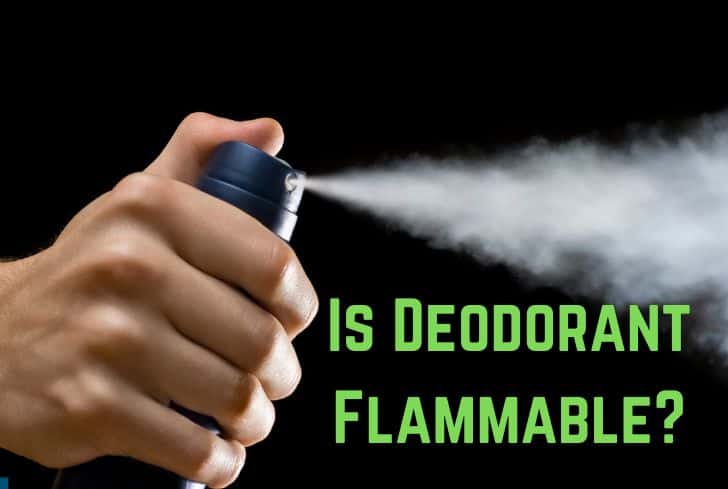
You may not always be aware of this, but a number of items in our household can pose a fire hazard. One such commodity that a lot of people have doubts about its safety is the quick-fix hygiene product, deodorant.
Since you can find deodorants in almost any house you go to, it is necessary to know more about how it will react in case of an accident like a fire. The question arises – is deodorant flammable enough to catch fire? How will it react after it has dried on a surface?
Read on to know more!
Is Deodorant Flammable?
While it is a common belief that deodorants are flammable, there is a catch to the statement. Different deodorants have different bases and if you have an aerosol or alcohol-based one, then it is most likely to catch fire as the propellant used in it would most likely be a hydrocarbon. So, the deodorant can be flammable but again it depends on the ingredients used.
Although they are hazardous, these gasses work the best for scenting skin, dry off quickly, and are also long-lasting. Hence, there are not many options apart from aerosol and alcohol for propellant fuel.
A lot of components of deodorants are extremely flammable, hence, if you want to know if it can burn, simply spray it on a small piece of cloth, and then light it outside where other things cannot catch fire. If a brand has specifically marked its deodorant ‘not flammable’, then you can consider it to be safe.
Why is Deodorant Flammable?
Deodorants are not flammable by themselves, but the propellant inside is most likely full of aerosol or alcohol – both are gasses that are most likely to catch flame. In terms of aerosol, it is full of hydrocarbons – chemicals that are used in lighter fluids for flammability. Alcohol also burns easily when exposed to air, so the whole bottle of deodorant becomes combustible.
Hydrocarbons are basically derivatives of petrol, like Propane and Butane, so they are highly combustible. Once on fire, they also let out a lot of harmful gasses like carbon monoxide and dioxide with the smoke and heat they release which can be very dangerous to one’s health.
A lot of components of deodorants are extremely flammable, hence, if you want to know if it can burn, simply spray it on a small piece of cloth, and then light it outside where other things cannot catch fire. If a brand has specifically marked its deodorant ‘not flammable’, then you can consider it to be safe.
On the other hand, alcohol is used as an irreplaceable base because, without it, it will not stay on the applied surface as long as you want it to. It is also a key ingredient in deodorant or perfume because, without it, the liquid will not evaporate well.
Additionally, deodorants are also a cheaper option than expensive perfumes, due to these aerosol and alcohol being simple bases.
Is Stick Deodorant Flammable?
Stick deodorants may or may not be flammable. They are not the same as kerosene or gasoline, so it is difficult to say whether they will catch fire or not. However, it is better to assume that it will as it includes both alcohol and water. Unlike spray-ons and roll-ons, stick deodorants are better termed as flammable objects.
They might catch fire, but they do not pose a threat as liquid bases do, which might even spread around and cause a large fire, but they will not burn or explode as you might expect other variants might do. Since they contain both alcohol and water – two difficult-to-ignite materials, you cannot expect them to burn so easily.
Just make sure to check the components of the deodorant properly before you buy it. If it contains flammable chemicals like aerosol, then it is likely to catch fire.
Hence, the safest substitute for any kind of deodorant is essential oil. Not only are they non-irritating on the skin, but other ingredients used in their formula can also bring more benefits to it.
Is Spray Deodorant Flammable?
Spray deodorants are extremely flammable and can even explode if exposed to fire because of their aerosol content. If it states that the product is not flammable, it will not catch fire. However, spray deodorant contains alcohol, which makes it highly flammable.
Even light deodorants, like perfumes, are considered a flammable liquid, with a hazard class of 3, as they use a large amount of ethyl alcohol.
You have to be very careful when using spray deodorant. If you even decide to try spraying it over a flame, the fire can get dragged into the deodorant can through the puncture and cause the whole bottle to explode. Hence, out of all its variants, you have to be most careful with spray deodorants.
When hurt or affected by such an accident, the affected area can become extremely itchy, and painful and may even freeze up and become hard with blisters. Hence, while useful, aerosol products should be safely dealt with.

Can Deodorant Cause an Explosion?
Deodorants are flammable enough to cause an explosion – especially spray-on. If a flame were to catch onto the mist let out by the deodorant, and get suctioned into the spray bottle, the container full of the propellant can cause the whole bottle to burst and cause a serious explosion.
This is because when air gets hot from burning, it needs an area to expand, and the tight pressure inside a metal can make it pop out explosively. The can will also tear into pieces, which can leave anyone close to it injured. Hence, make sure to never spray deodorant near a flame.
It is also the reason why deodorant flamethrowers are made in such a way that the flame from the gas stove cannot go up a pipe again. A lot of times, just having a slight exposure to oxygen can pose a threat to people.
Can Deodorant Explode in a Hot Car?
Hot air is packed in a tight space when the temperature is high in a car. This can be particularly dangerous for a can of deodorant. The propellant inside does not need a direct flame for it to heat up, and a car out in the sun on a hot summer day is enough for it to expand and then burst open, causing an explosion.
This happens because cans under pressure can become fragile and even bend or break – which is also the reason why people advise against buying puffed-up metal cans. To avoid this, make sure to never leave your deodorant in the car, and keep it safely in a place of the correct storage temperature as will be mentioned.
Stick deodorants, however, are a completely different case. While they can also catch fire, being made of the same deodorant chemicals, it is more of a flammable solid. It might burn after catching a flame, but it will not cause an explosion.
Is Deodorant a Flammable Liquid?
Deodorant is a flammable liquid as most of their propellants have an aerosol or alcohol base. These liquids have chemicals like Butane, Isobutane, and Propane in it which are used in lighter fluids for their flammability. Hence, in terms of safety, stick deodorants are far easier to keep around.
If you are wondering whether deodorant will be labeled a flammable liquid in terms of traveling, then it most certainly is, if you have a spray or a roll-on. Stick deodorants are safe to bring on a flight as it does not pose the risk of leakage or the container changing shape under pressure.
Even deodorants in crystal and powder form are safe to bring. Only liquid or variants that risk leakage like roll-ons, gels, creams, and pastes are either banned or only allowed in 3.4-ounce containers. Some flights, however, do allow carrying deodorant in hand baggage.
Another type of gas that can be used as a deodorant base is nitrous oxide. However, due to its high-inducing and addictive properties, it is not used for making deodorants.
What Happens When You Spray Deodorant On Fire?
If you spray deodorant on fire, it is most likely to rise up the area that you have sprayed it on. That is, if you were to light a lighter and spray deodorant near its flame, the fire would burn in the direction of the mist. The flame might not get inside through the nozzle, but if there is a crack in the can, it might even explode.
Deodorants have aerosol bases, and the gas is a flammable type that becomes a liquid when under high pressure. When vaporized, the mist can catch fire and burn even after it has dried up.
For the propellant to explode, the liquid chemical needs to come in contact with oxygen, flame, and heat. Deodorant might not immediately explode if sprayed on a fire, but if your can were to start cracking as the heat rises and the hot air inside expands, then you might pose a risk to yourself and those around you.
It is better to be safe than sorry, and it would not be advisable to spray deodorant near a fire as it is a lot of fuel inside a very tight space. Hence, there is more of a chance of an accident than an entertaining time.
Related Questions
Why is Aerosol Used in Deodorants?
Aerosol is used in deodorants because it is a gas that turns into a liquid when exposed to oxygen. This is very useful for deodorant formulas and is what makes the commodity so quick and easy.
Is Stick Deodorant Better Than Spray Deodorant?
Stick deodorants are better in terms of portability. They are travel-friendly and pose a lesser risk of flammability and explosion. On the other hand, spray deodorants are better if you want the scent to remain longer.
Do Non-Flammable Deodorants Exist?
There are many deodorants made up of non-flammable bases. If the brand you pick particularly says ‘non-flammable’, then you can assume it is, as most deodorants can catch fire easily.
What Happens If You Burn Deodorant?
Burning deodorant can lead to injuries on the applicator themselves as the can is most likely to explode and burst into shreds.
Final Thoughts
While stick deodorants may not be as effective as spray ones in terms of coverage, they are easy to travel with and good for quick application. Deodorant can be extremely dangerous, so it is up to the user to be more careful with storing it. We hope that this article has proven to be useful in your query.



